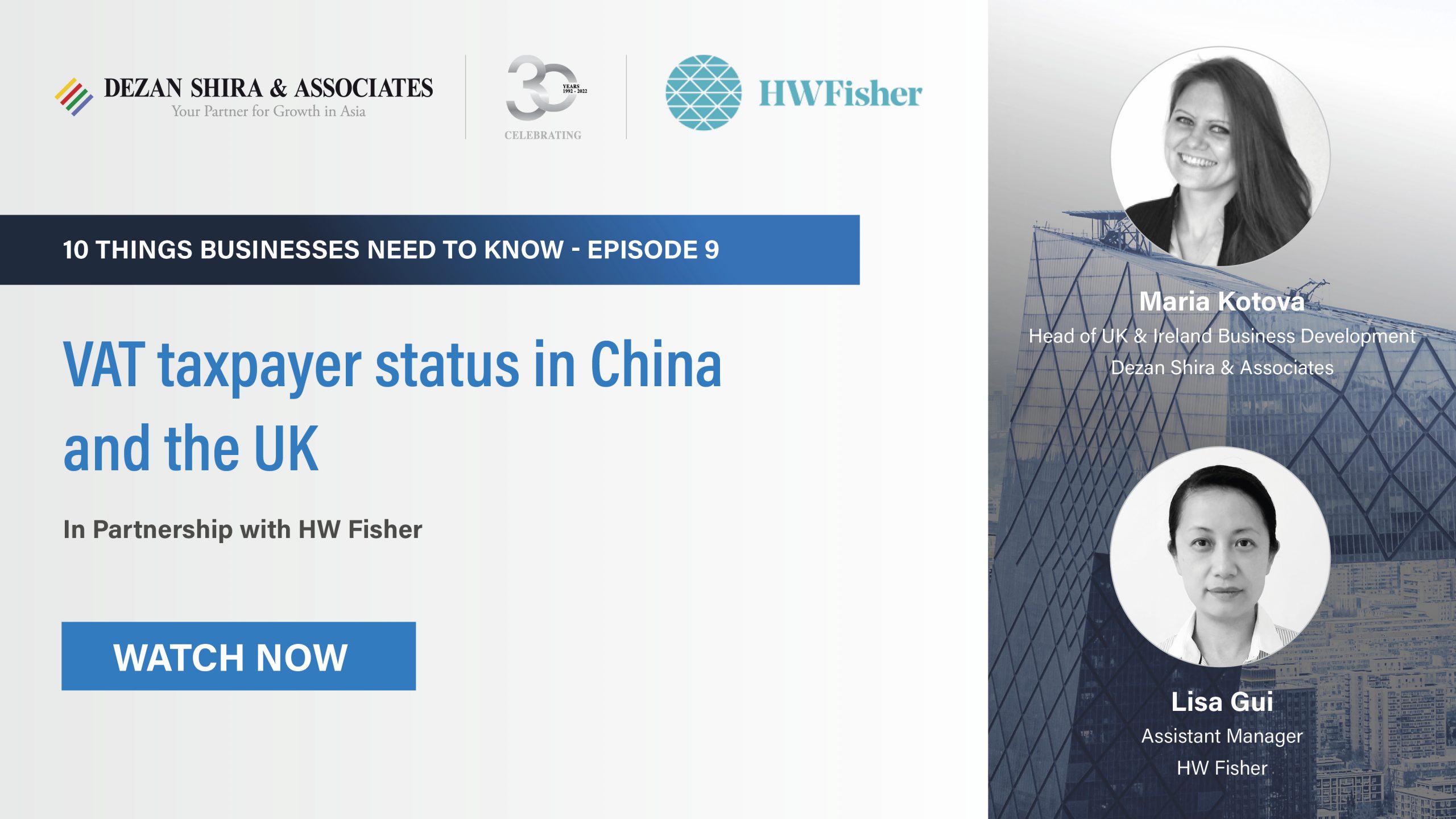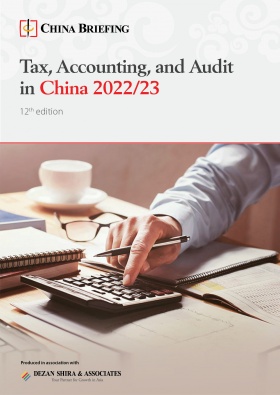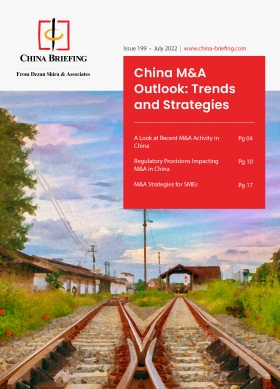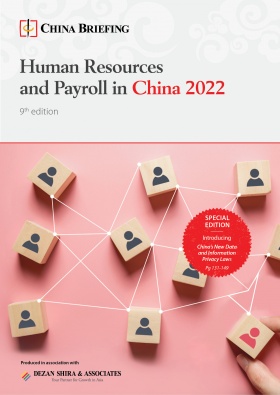VAT Taxpayer Status in China and the UK
We discuss VAT taxpayer status in China and the UK, including key differences that impact compliance expectations and financial reporting.
This series concentrates on the UK-China business angle. Every week, we will add a new video that answers some of the most frequently asked questions about setting up a company in China and the UK. Each video answers the same issues from both the China and UK perspectives.
Key insights will be provided by, Maria Kotova, Head of UK and Ireland Business Development and China market entry director at Dezan Shira & Associates, and Lisa Gui, Assistant Manager at HW Fisher.
If you have any questions about doing business in China or the UK, reach us at UK.Ireland@dezshira.com.
Episode 9: VAT taxpayer status in China and the UK
VAT taxpayer status in China
VAT is one of two major turnover taxes in China, the other being consumption tax. VAT is levied on the gross margin at every point on the supply chain where value is added to a taxable product or service. It is considered a neutral tax, allowing taxpayers to offset VAT that has already been paid for the cost of materials used in the product at a previous stage.
VAT taxpayers are categorized into general taxpayers and small-scale taxpayers based on their annual taxable sales amount. Taxpayers with annual taxable sales exceeding the annual sales ceiling (RMB 5 million, approx.US$710,000) set for small-scale taxpayers must apply for general taxpayer status. VAT payers whose annual taxable sales are below the ceiling, as well as those who have newly established their business, can voluntarily apply for general taxpayer recognition upon meeting certain conditions.
Traditionally, a company must obtain VAT general taxpayer status in order to be able to issue special VAT invoices. However, starting from February 1, 2020, China has been allowing all small-scale taxpayers (except other individuals) to voluntarily use the VAT invoice administrative system to issue the special VAT invoice by themselves, after testing that in several pilot programs since 2016.
Small-scale taxpayers are generally subject to a lower VAT levy rate of three percent (reduced to one percent during the period between March 1, 2020, and December 31, 2021), as compared to rates ranging from six to 13 percent for general taxpayers, but they cannot credit input VAT from output VAT, nor are they entitled to export VAT refunds.
VAT taxpayer status in the UK
In the UK there is no need to register for VAT unless your business taxable turnover exceeds £85,000 in any rolling 12-month period. However, VAT can be registered voluntarily before the VAT threshold is reached to avoid late filing and registration penalties from HMRC for failing to notify them within the appropriate time period.
Whether VAT is charged or not and at what rates, all depends on the type of supply of goods or services of the business.
The standard rate of VAT in the UK is currently 20 percent but there are other VAT rates that apply to certain items.
See more from the series
Episode 8
Episode 7
Episode 6
Episode 5
Episode 4
Episode 3
Episode 2
Episode 1
About Us
China Briefing is written and produced by Dezan Shira & Associates. The practice assists foreign investors into China and has done so since 1992 through offices in Beijing, Tianjin, Dalian, Qingdao, Shanghai, Hangzhou, Ningbo, Suzhou, Guangzhou, Dongguan, Zhongshan, Shenzhen, and Hong Kong. Please contact the firm for assistance in China at uk.ireland@dezshira.com.
Dezan Shira & Associates has offices in Vietnam, Indonesia, Singapore, United States, Germany, Italy, India, and Russia, in addition to our trade research facilities along the Belt & Road Initiative. We also have partner firms assisting foreign investors in The Philippines, Malaysia, Thailand, Bangladesh.
- Previous Article Scholz’s German Business Delegation Looking To Understand China Opportunities
- Next Article China’s Debut in the Metaverse: Trends to Watch (Updated)
















